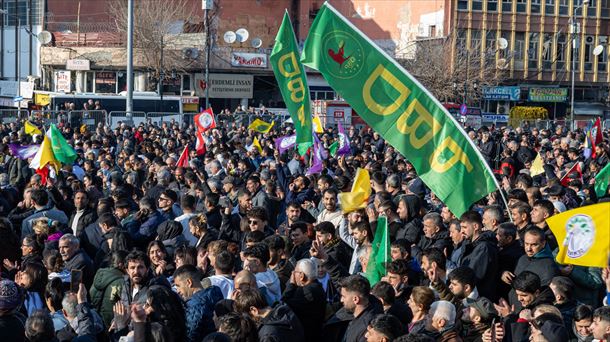Brussels considers disconnecting more banks from Swift payment system and punishing individuals linked to disinformation
The sixth package of European sanctions against Russia includes an oil embargo. This was confirmed by the head of European diplomacy, Josep Borrell, in a message broadcast through his social networks. He also indicated that the community blockade will decouple more Russian banks from the Swift payment system and penalize a range of individuals linked to disinformation campaigns.
Brussels is working against the clock to brush up on the final details and this week to pass a new wave of sanctions against Moscow, including the veto on Russian crude oil, a company that moves about 48,000 million euros a year. The move, prompted largely by the cessation of gas supplies to Bulgaria and Poland by the Russian giant Gazprom, aims to have a major impact on the Russian economy and cut off funding for Vladimir Putin’s “war machine”.
Member States’ reluctance to introduce more energy penalties is gradually disappearing. Germany, one of the countries opposing the country because of its heavy reliance on Russia, has already announced that it has taken the necessary steps to increase its energy independence and that it will support the European executive’s proposal. In this way, the last hurdle to overcome seems to be Hungary, which has categorically refused further sanctions of this type and has shown its willingness to pay Russian gas in rubles, in violation of European penalties against Moscow.
In his speech to the European Parliament last Tuesday, Italian Prime Minister Mario Draghi encouraged progress towards a European Union that takes decisions by qualified majority. “The current need for unanimity only blocks negotiations through mutual vetoes by member states,” he stressed.
Likewise, he insisted on the need to reform the European energy market to decouple the price of gas from that of electricity. “Currently, the market is disrupted and looking to the future, with the rise of renewables, the pricing system is unsustainable,” he said.
Since the start of the Russian invasion on February 24, the EU has been trying to increase its energy independence by diversifying suppliers and promoting renewable energy sources. However, Energy Commissioner Kadri Simson warned that “it will not be possible to replace the entire Russian stock” and that Europe will have to increase its energy efficiency and savings.
For the time being, Member States continue to expand their strategic reserves with a view to October, when they should reach 80% of the storage. Looking ahead to the coming years, the goal is for EU countries to face the winter with their reserves at 90% capacity. To achieve this, solidarity between the different states will have to be promoted, as not all of them have sufficient storage capacity.
The President of the European Council, Charles Michel, went to Greece for the inauguration of a new LNG terminal for liquefied natural gas. This type of energy is one of the alternatives that Europe is considering for Russian supply, and the United States has already committed to supply 15,000 million liters this year. “It is a geopolitical investment because it will increase European energy independence,” Michel said.
The EU also hopes to secure energy supplies and achieve competitive prices when purchasing crude oil and gas through its voluntary joint purchasing platform. In the long term, however, “Europe will be based on green energy”, assured the President of the Council.
Source: La Verdad
I am an experienced and passionate journalist with a strong track record in news website reporting. I specialize in technology coverage, breaking stories on the latest developments and trends from around the world. Working for Today Times Live has given me the opportunity to write thought-provoking pieces that have caught the attention of many readers.



